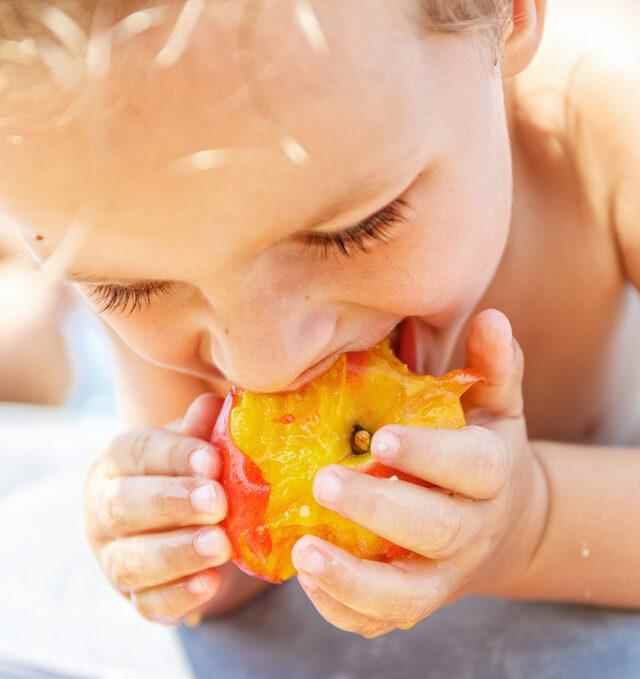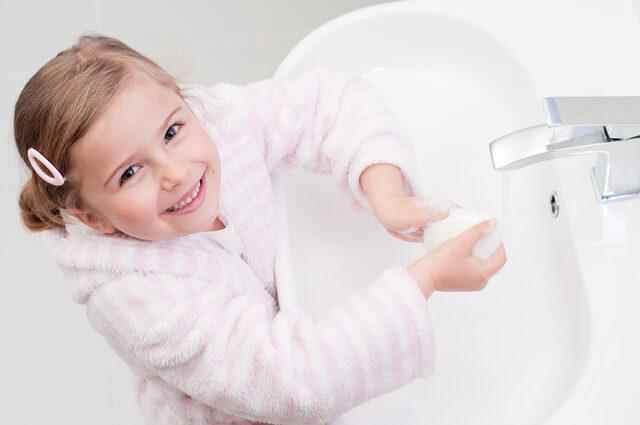Acıbadem Taksim Hospital Pediatrics Specialist Dr. Betül Sarıtaş “High air temperature facilitates the proliferation of microbes in the food consumed and on the surfaces in contact with, causing an increase in some diseases. At the same time, the development of the disease becomes easier with the increase in the time spent in the communal pools and parks, as well as the exposure to the harmful rays of the sun. Abdominal pain, diarrhea, vomiting, fever, cough and rashes are among the most common reasons for children to apply to the hospital these days. Especially in cases of not being able to feed due to vomiting and nausea, in cases of intense diarrhea and sunstroke, fluid loss increases even more with the effect of high air temperature. These complaints in children should not be neglected and a pediatrician should be consulted.
Stomach and Intestinal Inflammation
While acute gastroenteritis (inflammation of the stomach and intestines) presents itself with diarrhea, fever and vomiting may accompany. Stating that the increase in the frequency of travel and the change in the diet during the summer months, the consumption of unhygienic water and food kept in the open increases the risk of contracting the disease. Betül Sarıtaş says: “In case of prolonged and increased frequency of diarrhea, plenty of fluids should be consumed, pulpy foods that increase bowel movement should be avoided, and fatty and spicy foods should be avoided. In cases where fluid is not taken as much as the fluid lost from the body, restlessness, extreme weakness, dryness of the skin and mucous membranes, collapse of the eyeballs, decrease in the amount of urine and absence of tears can be seen. These situations are very dangerous especially for young children, and a pediatrician should be consulted as soon as possible without neglecting them.” Stating that hand hygiene should be taken care of in order to prevent this disease, Dr. Betül Sarıtaş emphasizes that foods that are kept outside for a long time should not be consumed, vegetables and fruits should be washed with plenty of water, and especially attention should be paid to clean water consumption.

URINARY TRACT INFECTION
In particular, the increase in the use of communal pools and slides, which are not well cleaned, leads to an increase in the frequency of urinary tract infections. Burning during urination, frequent urination, itching in the genital area, fever and vomiting are among the most common complaints in children. Stating that in case of these complaints, a doctor should be consulted, Pediatric Health and Diseases Specialist Dr. Betül Sarıtaş “When neglected, urinary tract infection can progress and cause kidney damage. Among the precautions that can be taken are paying attention to the cleanliness of the pool to be used, taking a shower with soap before entering the pool, taking care that children do not get the pool water in their mouths, taking a shower after using the pool, changing the wet swimsuit quickly, and paying attention to the cleaning of the genital area after the toilet. says.

OUTER EAR ROAD INFECTION
Stating that outer ear infection, also known as swimmer’s ear, is generally seen in cases where contact with water increases after spending time in the sea and pool for a long time, Dr. Betül Sarıtaş gives the following information: “Complaints usually start with sudden and severe earache. Then, sensitivity develops in and around the ear. If there is an earache that does not go away, a doctor should be consulted as soon as possible. In order to prevent external ear infection, after getting out of the pool and the sea, the water in the ear should be removed by tilting the head to both sides, the ears should be dried with a dry towel and the use of ear sticks for cleaning should be avoided.

SUNSHOCK AND BURNS
Spending a long time unprotected under the sun can cause sunstroke symptoms such as fever, sweating, nausea, weakness and palpitations in children. In this case, the children should be taken to a cool place immediately, the fever should be lowered and plenty of fluids should be consumed. Betül Sarıtaş says that children should not be exposed to the sun between 10:00 and 16:00, that water-resistant sunscreen creams with a factor of at least 30 should be used in children from the 6th month, and that the sunscreen should be renewed every two hours.

FLY AND INSECT BITES
With the increase in the time spent outside in the summer months, fly and insect bites can cause allergic reactions, itching, redness and pain in children. Child Health and Diseases Specialist Dr. Emphasizing that the area affected by fly and insect bites should be washed with soapy water immediately and a cold compress should be applied for at least 10 minutes if there is swelling, Betül Sarıtaş said, “The type of insect and whether it is poisonous should be determined and in case of an allergic reaction, a health center should be applied immediately. Clothes that protect the arms and legs of babies should be preferred in open areas. For protection, fly repellent sprays can be applied to the whole body, except the face and hands, at most once a day, in babies and children older than 2 months.

Rash and Rash
Especially with the effect of extreme heat and humid air, skin rashes are frequently encountered in babies and children as a result of clogging of the sweat channels. Stating that children should be showered and dressed in thin clothes every day in hot weather, Dr. Betül Sarıtaş says that diapers should be changed at least 6-7 times a day, the diaper area should be carefully cleaned with alcohol-free wipes, and the diaper area should be left open and ventilated for a while after the baby’s diaper is changed.
